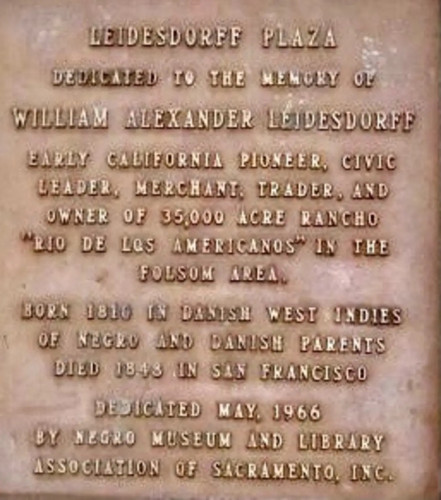From the Open-Publishing Calendar
From the Open-Publishing Newswire
Indybay Feature
25th Anniversary of Folsom Juneteenth, a date that marks an ongoing journey toward freedom
It will take private capital to re-establish Leidesdorff Plaza, a quarter century of labor in the vineyards honoring the ancestors and elders work. A positive new way forward is at hand.
Folsom Juneteenth was originally established June 2000 at Negro Bar State Park, and warmly ambitious in its clarion call—that is, to peel away to the layers of largely untaught truths in schoolrooms, history books and museums by revealing the importance of African-Americans to the development of Sacramento and California. The Moores welcome all people of all races to the event.
“The point is to make a day where families can meet their neighbors and have fun, but also begin to talk about the really incredible history of this area,” says Dr. Moore. “People are interested in history, not just in the abstract. Instead, we really want to make personal connections with the past, and Juneteenth is a way for African-American people, especially, to make those very personal connec tions.” Notably, the “Reclaiming the Past” project was selected last year by the National Park Service to be part of its “Underground Railroad Network to Freedom Project,” only one of two such programs honored in the West.
The larger, three-to-five-year project that the Juneteenth celebration spotlights is the creation of the permanent William Alexander Leidesdorff Interpretive Center, which will be housed in a reconstructed adobe building. According to the not-for-profit group’s mandate, it will acquaint visitors to broad historical themes important to California, including the region’s multicultural heritage, slavery, the abolitionist movement, the Underground Railroad and race relations. ‘We’re looking at the whole history of African-Americans from Sacramento up to Coloma along the American River during the Gold Rush period,” says Mr. Moore.
Moore is working with both the State and National Park Service to create the center at Folsom, which was originally called Negro Bar. That was the site where African-American miners first panned for gold in the 1840s and ‘50s. Later, the name was changed to Folsom. The State Park Service built Negro Bar State Park directly across the river from Folsom, in memory of the African-Americans who were there first.
‘Most people do wonder what that name means because there is no historical background marker yet to explain it,”
“The point is to make a day where families can meet their neighbors and have fun, but also begin to talk about the really incredible history of this area,” says Dr. Moore. “People are interested in history, not just in the abstract. Instead, we really want to make personal connections with the past, and Juneteenth is a way for African-American people, especially, to make those very personal connec tions.” Notably, the “Reclaiming the Past” project was selected last year by the National Park Service to be part of its “Underground Railroad Network to Freedom Project,” only one of two such programs honored in the West.
The larger, three-to-five-year project that the Juneteenth celebration spotlights is the creation of the permanent William Alexander Leidesdorff Interpretive Center, which will be housed in a reconstructed adobe building. According to the not-for-profit group’s mandate, it will acquaint visitors to broad historical themes important to California, including the region’s multicultural heritage, slavery, the abolitionist movement, the Underground Railroad and race relations. ‘We’re looking at the whole history of African-Americans from Sacramento up to Coloma along the American River during the Gold Rush period,” says Mr. Moore.
Moore is working with both the State and National Park Service to create the center at Folsom, which was originally called Negro Bar. That was the site where African-American miners first panned for gold in the 1840s and ‘50s. Later, the name was changed to Folsom. The State Park Service built Negro Bar State Park directly across the river from Folsom, in memory of the African-Americans who were there first.
‘Most people do wonder what that name means because there is no historical background marker yet to explain it,”
For more information:
https://www.eventbrite.com/e/2025-folsom-j...
Add Your Comments
We are 100% volunteer and depend on your participation to sustain our efforts!
Get Involved
If you'd like to help with maintaining or developing the website, contact us.
Publish
Publish your stories and upcoming events on Indybay.
Topics
More
Search Indybay's Archives
Advanced Search
►
▼
IMC Network



